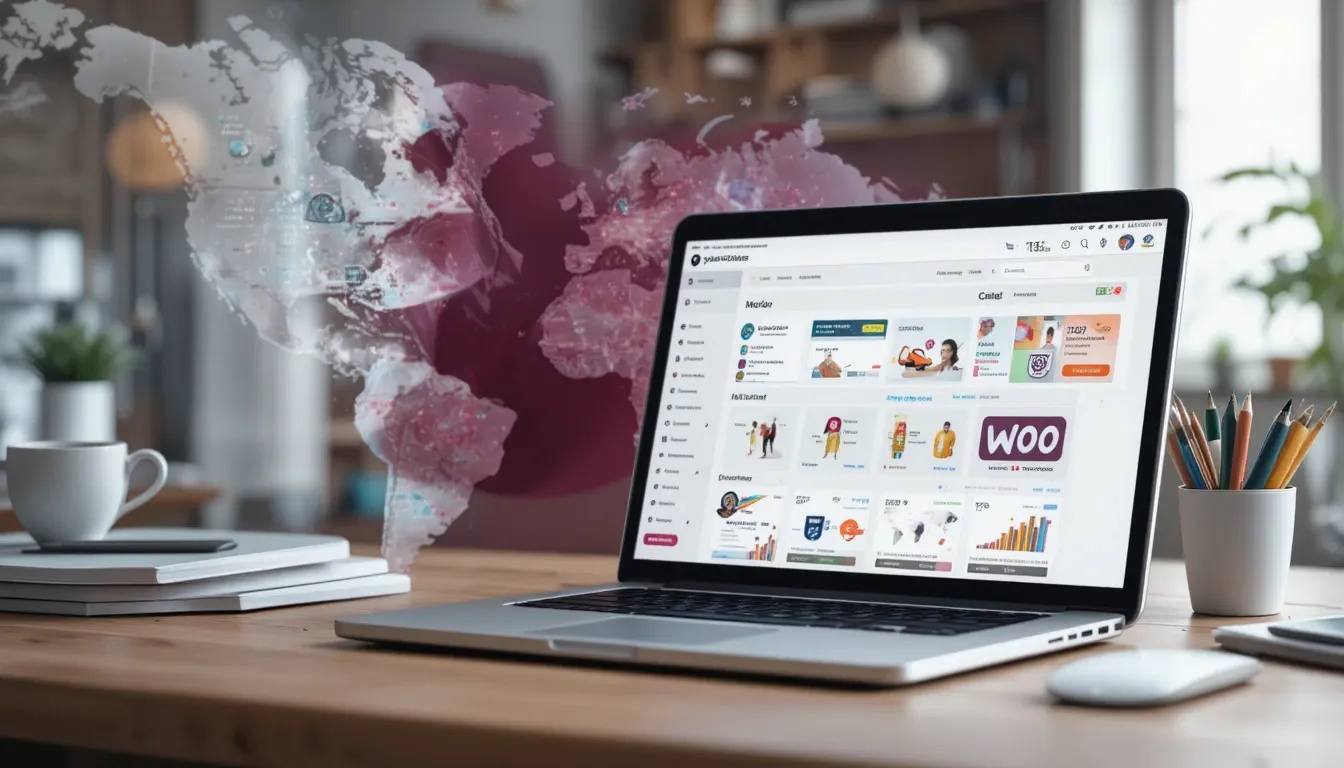Dropshipping in Qatar is emerging as one of the most accessible and profitable e-commerce models for new entrepreneurs. With a 99% internet penetration rate and over 3 million active users, Qatar offers one of the most digitally connected consumer markets in the Middle East.
As per IMARC’s study, Qatar’s e-commerce sector, valued at USD 3.8 billion in 2024, is projected to reach USD 10.1 billion by 2033.
As business setup consultants specializing in Qatar’s digital economy, we’ve seen how legally registered dropshipping ventures can thrive quickly.
In this comprehensive guide, you’ll learn how to start a dropshipping business in Qatar, including legal setup, profitable niches, reliable suppliers, and marketing strategies tailored for the local market.
TL;DR: Dropshipping in Qatar 2025
- Qatar’s E-Commerce Boom: The market reached USD 3.8 billion in 2024 and is projected to hit USD 10.1 billion by 2033.
- Legal Setup: Obtain a Commercial Registration (CR) and the Theqa Trustmark to operate legally. You may start informally without them, but be ready for future compliance checks.
- Logistics Are Improving: The freight and logistics market now exceeds USD 10 billion (2025), though customs paperwork and last-mile delays still affect delivery times.
- Cash on Delivery (COD) Dominates: Around 83 % of consumers still prefer COD for online purchases.
- Suppliers Matter: Use verified Qatar-based or global dropship partners that deliver directly to customers for better reliability and compliance.
- Start Small, Scale Smart: Test product demand organically on Instagram, TikTok, or Snapchat before launching a full bilingual e-commerce site.
- Get Expert Help: Meem Business Services can guide you through registration, payment setup, and connecting with verified dropshipping suppliers in Qatar.
Why Dropshipping in Qatar Is a Smart Opportunity in 2025
Dropshipping in Qatar has become one of the most attractive online business opportunities for 2025, thanks to the country’s booming digital economy, high disposable income, and rapidly evolving logistics infrastructure.
Qatar ranks among the world’s richest nations, with a GDP per capita of around USD 64,000–76,000. It also enjoys 99 % internet penetration and over 3 million connected users, making it one of the most digitally active populations globally.
The Qatari e-commerce market grew to USD 3.8 billion in 2024 and is projected to reach USD 10.1 billion by 2033, driven by a 10 % CAGR and government initiatives supporting online entrepreneurship.
Qatar has high social-media penetration like Instagram 81 %, TikTok 74 %, and Snapchat 67 %, this can help you promote your products easily.
With world-class infrastructure—Hamad Port, Qatar Free Zones, and same-day delivery services in Doha—Qatar offers ideal conditions for new e-commerce founders.
For entrepreneurs seeking a low-investment, high-growth model, dropshipping in Qatar 2025 represents a timely, scalable entry point into the region’s expanding digital marketplace.
Is Dropshipping Legal in Qatar?
Yes, dropshipping is legal in Qatar, but only when your business is properly registered and licensed.
Every online seller must obtain a Commercial Registration (CR) from the Ministry of Commerce and Industry (MOCI) and list “e-commerce” or “online retail” as an approved activity on the license.
In addition, all customer-facing stores must secure the Theqa Trustmark from the Ministry of Transport and Communications (MOTC), confirming compliance with Qatar’s privacy, data-security, and consumer-protection laws (eCommerce.gov.qa, 2025).
Some new sellers start dropshipping in Qatar without registration, but several later received verification calls from MOCI requesting proof of licensing and business activity.
So, technically, you can test the model without formal registration, but you should be prepared for consequences such as warnings, fines, or suspension under Consumer Protection Law No. 8 of 2008.
How to Start a Dropshipping Business in Qatar (Step-by-Step)
Starting a dropshipping business in Qatar can be a low-risk way to enter e-commerce, if you understand how to test products, work with the right suppliers, and follow Qatar’s registration and compliance requirements.
The steps below outline how to move from idea to launch efficiently in 2025.
1. Research and Find Winning Products
Before anything else, focus on identifying products that appeal to Qatar’s online audience. Review trending items on platforms such as TikTok, Instagram, and Snapchat, especially in niches like smart gadgets, fitness accessories, baby care, and home organization.
Look for products with consistent engagement and low local competition.
2. Choose and Verify Suppliers
Once you’ve identified promising products, find dropshipping suppliers who can ship directly to customers in Qatar.
Reliability is crucial; check delivery timelines, return policies, and packaging standards. Many local entrepreneurs work with Qatar-based suppliers or use international platforms such as AliExpress via DSers, Spocket, or Modalyst.
At Meem, we provide a curated list of trusted local and international suppliers exclusively for clients who open their Commercial Registration (CR) through us. We can assist you for your pro services and all other business services.
3. Test Organically Through Social Media
You don’t need a website at first. Many successful sellers start by testing products organically on Instagram, TikTok, or Snapchat using short videos, stories, and direct messaging to handle inquiries. This lets you validate interest and refine your pricing before investing in a full store setup.
4. Complete Legal Registration and Compliance
Once your idea gains traction, formalize your business.
Apply for a Commercial Registration (CR) through the Ministry of Commerce and Industry (MOCI) and select e-commerce or online retail as an activity.
Next, register your website for the Theqa Trustmark which certifies that your platform complies with Qatar’s e-commerce and data-protection standards.
These two steps make your store officially recognized and compliant with Consumer Protection Law No. 8 of 2008.
5. Build and Localize Your Online Store
When you’re ready to scale, set up your storefront using platforms such as Shopify, WooCommerce, or Wix. Ensure bilingual (Arabic–English) navigation, transparent pricing, and clear refund and delivery policies.
Localized content increases trust and aligns with Qatar’s consumer-rights regulations.
6. Set Up Secure Payment Gateways
Integrate Qatar Central Bank-licensed payment gateways like Dibsy, MyFatoorah, or Fatora to accept payments in QAR.
While digital payments are growing, Cash on Delivery (COD) still accounts for roughly 70 % of online orders in Qatar (OkSouq, 2025). Offering COD alongside prepaid options builds credibility, especially for first-time buyers who prefer paying after receiving their orders.
7. Market to Qatar’s Digital Audience
Use Qatar’s high social-media penetration—Instagram 81 %, TikTok 74 %, and Snapchat 67 % to promote your products. Focus on bilingual ads, user-generated content, and transparent delivery messaging.
Organic posts and local influencers can help you gain traction before scaling through paid campaigns on Google ads, Meta Ads or TikTok For Business.
You can use our AI business plan generator and market research assistant for more insights to Qatar’ market.
Profitable Dropshipping Niches in Qatar — 2025 Quick Checklist
| Niche | Example Products | Launch Tips for Qatar Market |
|---|---|---|
| Smart Home & Everyday Electronics | Smart bulbs, phone accessories, mini projectors | Use short demo videos on TikTok/Instagram; highlight fast delivery and easy returns. |
| Modest Fashion & Accessories | Abayas, scarves, minimalist jewelry | Provide Arabic–English sizing; offer quick exchanges and same-day/next-day delivery where possible. |
| Baby & Kids’ Products | Montessori toys, baby gear, storybooks | Promote via family creators; use educational angles and clear age guidance. |
| Health, Beauty & Wellness | Skincare tools, workout bands, diffusers | Share quick tutorials and customer results; bundle small items for higher cart value. |
| Sustainable Home & Lifestyle | Reusable bottles, bamboo kitchenware, eco organizers | Highlight durability and low-waste living; position around Qatar’s sustainability goals. |
| Car Accessories & Tech Gadgets | Dash cams, wireless chargers, organizers | Create in-car demo reels; emphasize reliability and local warranty support. |
| Pet Care & Lifestyle | Pet beds, grooming kits, travel carriers | Use playful short-form videos; target Doha pet communities and hashtags. |
Notes: Start with organic testing on social, then scale winners. Keep delivery windows realistic and communicate proactively during peak seasons.
Finding Reliable Dropshipping Suppliers in Qatar and Abroad
Your supplier is the backbone of your dropshipping business. Reliable partners ensure consistent quality, faster delivery, and satisfied customers.
1. Start with Local Fulfillment Partners
Working with Qatar-based suppliers helps reduce delivery times, avoid customs delays, and build customer trust through faster order handling.
Local distributors offer a wide range of electronics, lifestyle, and household products suitable for resale.
Local fulfillment also makes it easier to manage returns and communicate directly, which can significantly improve your store’s credibility in the first few months of operation.
2. Explore Global Dropshipping Platforms
If local options don’t match your niche, look into global supplier networks that support shipping to Qatar. Some reliable international platforms include:
- AliExpress via DSers – for testing fast-moving, low-cost items.
- Spocket – connects you to verified suppliers in the US and EU.
- Modalyst – integrates with Shopify and features quality-checked global brands.
When choosing overseas suppliers, check if they offer real-time tracking, return support, and clear product labeling that meets Qatar’s import rules.
3. Verify Quality and Shipping Performance
Always test suppliers before listing products. Order a few samples to evaluate packaging, delivery speed, and accuracy of descriptions.
For Qatar, a 7–10 day delivery window is considered competitive; longer than 20 days can reduce customer satisfaction and increase refund requests.
Maintain clear communication with suppliers regarding inventory updates, as many product delays occur due to out-of-stock items that were not reflected online.
4. Ensure Transparency and Compliance
Under Consumer Protection Law No. 8 of 2008, sellers are responsible for providing honest product descriptions, clear pricing, and visible warranty or return terms even if the supplier is located abroad.
Ensure all information shown on your store matches what customers actually receive to avoid legal complications or loss of Theqa certification.
5. Verified Supplier List from Meem
For entrepreneurs who register their company and obtain a Commercial Registration (CR) through Meem Business Services, we provide a curated list of verified local and international suppliers that already ship directly to customers in Qatar.
This list is offered to help new founders launch responsibly and with confidence, ensuring they start with trustworthy partners who understand local delivery expectations and compliance requirements.
6. Build Long-Term Relationships
Once you find reliable suppliers, focus on consistency rather than constantly switching for small price differences. Establishing long-term relationships improves reliability, helps with bulk discounts, and gives you priority during high-demand seasons like Ramadan and Eid.
Challenges and Practical Tips for Dropshipping in Qatar
Running a dropshipping business in Qatar can be profitable, but entrepreneurs should be aware of the unique challenges that come with customs, logistics, and consumer expectations.
1. Customs and Shipping Delays
Imports into Qatar are closely monitored, and incomplete or inaccurate customs documents can lead to additional clearance time. According to DHL Qatar, delays are common when product descriptions or paperwork are missing.
Tip: Work with suppliers who provide Qatar-friendly shipping options and full tracking visibility. Keep buyers informed throughout the delivery process—transparency reduces refund requests and increases repeat trust.
2. Limited Fulfillment Infrastructure
While e-commerce demand is strong, Qatar’s fulfillment and warehousing network is still developing compared to the UAE or Saudi Arabia. The Qatar freight and logistics market is valued at over USD 10 billion (2025), but reports cite limited automation and capacity challenges outside Doha.
Tip: Partner with local distributors or micro-warehouses for fast-moving items. Even limited local inventory can help you meet surge demands during Ramadan and Qatar National Day seasons.
3. Consumer Trust and Brand Credibility
Qatari shoppers remain cautious of new online stores and often prefer Cash on Delivery (COD) for first-time purchases. Studies show COD remains dominant—up to 83 % of consumers still use it.
Tip: Offer COD alongside prepaid options, and display security trust badges such as the Theqa Trustmark to reassure customers.
4. Product Compliance and Legal Risks
Selling uncertified or falsely labeled products can result in penalties from the Ministry of Commerce and Industry (MOCI).
Tip: Make sure every imported item complies with Consumer Protection Law No. 8 of 2008. Keep proof of authenticity, invoices, and supplier verification on file—MOCI can request documentation during spot checks.
5. Customer Service Expectations
With Qatar’s digital population exceeding 99 % internet penetration (DataReportal 2024), consumers expect quick, bilingual, and personal responses.
Tip: Use WhatsApp Business API or Meta Inbox for real-time support. Respond in both English and Arabic, and resolve returns promptly to prevent negative visibility on public social channels.
6. Payment Gateway Approvals
All QCB-licensed payment gateways—such as MyFatoorah, Dibsy, and Fatora—require valid business registration (CR), verified domain, and refund policies before activation.
Tip: Finalize your legal setup first, then apply for gateway approval to avoid rejections or processing delays.
7. Market Saturation and Product Fatigue
The Qatari e-commerce sector grew to USD 3.8 billion in 2024 and is projected to reach USD 10.1 billion by 2033 (IMARC Group). With growth comes competition—trending products can lose appeal fast as multiple sellers list the same items.
Tip: Refresh your product catalog monthly and use tools like Google Trends or Sell The Trend to spot emerging niches before they peak.
8. Trial Without Registration — Proceed Cautiously
Some beginners test their stores through social media before formal registration. However, operating long-term without a license can attract scrutiny from MOCI.
Tip: Testing demand informally is fine in the short term, but once sales start flowing, complete your MOCI Commercial Registration and apply for Theqa certification to operate legally and avoid fines.
Start Your Dropshipping Journey with Meem
Dropshipping in Qatar isn’t just a business trend — it’s a gateway to digital independence in one of the Gulf’s most progressive economies.
But success depends on more than just a good product. It’s about building a legally compliant, customer-centric, and trustworthy brand from day one. That’s where guidance makes the difference.
At Meem Business Services, we help entrepreneurs launch confidently by simplifying every step like company registration and access to our verified supplier directory that supports true dropshipping in Qatar.
Whether you’re testing your first niche idea or scaling into a full online brand, Meem gives you the tools, network, and compliance clarity to do it right.






